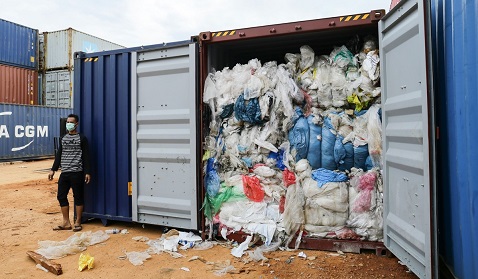West Australian councils have raised concerns about more recyclables ending up in landfill when a federal export ban on some waste plastics comes into force in July.
The state’s biggest recycling plant, operated by Cleanaway in suburban Guildford, burned down in late 2019 and is scheduled to re-open just days before stage one of the export ban begins on 1 July.
After the fire, Cleanaway dumped more than 2000 tonnes of recycling into landfill before brokering an emergency deal with the South Metropolitan Regional Council to cart recyclables to its Materials Recovery Facility in Canning Vale.
WA Local Government Association (WALGA) President and Wanneroo Mayor Tracey Roberts told The West Australian newspaper this week that local governments supported onshore recycling but had no control over packaging or the volume of waste generated.
She said the export ban meant MRFs had been forced to find alternative options for mixed plastics “and this likely to come at a cost” which ultimately will be passed on to ratepayers.
In a submission to the Federal Department of Agriculture, Water and Environment on Regulating the Export of Mixed Plastics, WALGA argued that “For Western Australia, markets in Asia are frequently more economically and environmentally efficient to trade with than other areas of Australia.
“Following the implementation of the ban, there will be a need for effective contingency planning to be put in place to ensure that should a facility be impacted by natural disaster, including fire, there will be alternative destinations available for the product.
“This is potentially an activity that could be undertaken at a national level.”
Another WALGA submission – to a Senate Inquiry into Australia’s waste management and recycling industries in November 2019 – warned that “The challenge for government and industry will be to implement the National Waste Policy Action Plan and ensure the export bans do not have perverse outcomes in different jurisdictions”.



